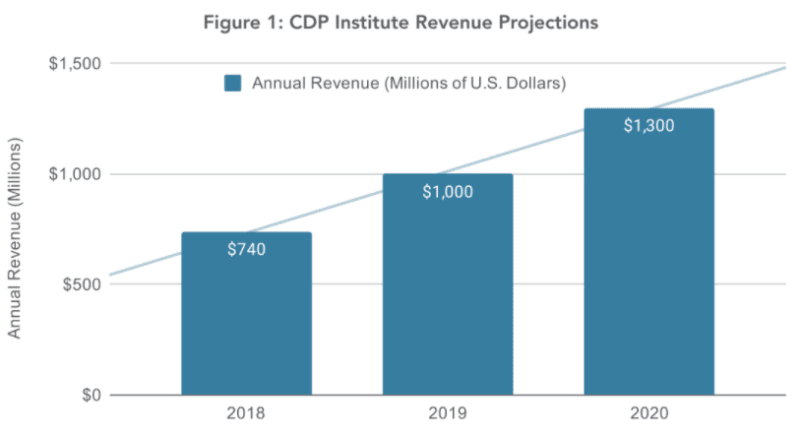The global market for customer data platforms is expected to rise dramatically over the next few years. The CDP Institute pegged industry revenue for 2019 at $1 billion and it expects the sector to reach at least $1.3 billion in 2020. Meanwhile, ResearchandMarkets predicts the industry will grow from $2. billion in 2020 to $10.3 billion by 2025, expanding at an astounding compound annual growth rate (CAGR) of 34.0% during the forecast period.
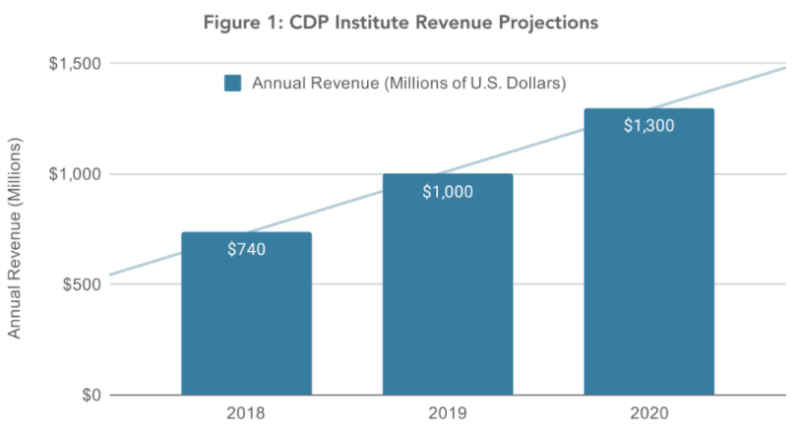
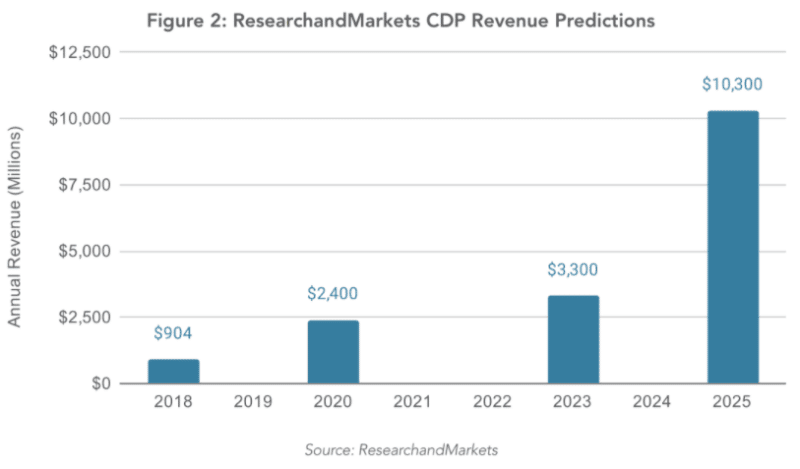
This growth is being driven by the proliferation of devices and customer touchpoints, higher expectations for marketers to orchestrate real-time personalized experiences across channels and the need to navigate complex privacy regulations. Let’s explore each of these factors in greater detail.
More devices, fragmented interactions and high expectations
Gartner predicted that the average U.S. adult would own more than six smart devices by 2020, and Cisco forecasts that the number of devices connected to IP networks globally will expand to more than three times the global population by 2023. There will be 3.6 networked devices per capita (29.3 billion overall) by 2023, says Cisco, up from 2. networked devices per capita (18. billion overall) in 2018.
Customers and potential customers are using all of these devices — several in a day, often — to interact with the companies they do business with, and they expect these brands to recognize them no matter what device they’re using at any given time.
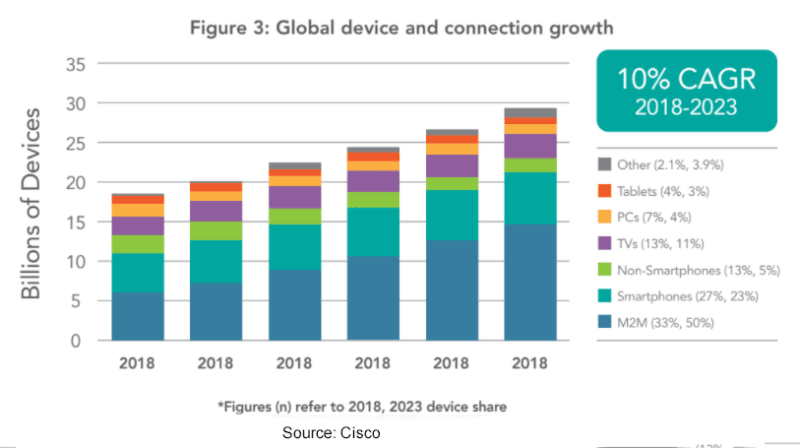
According to a Salesforce State of the Connected Customer survey conducted April 2019, 78% of respondents prefer to use different channels to communicate with brands depending on context, but 6% expect companies’ engagements with them to be tailored based on past interactions.
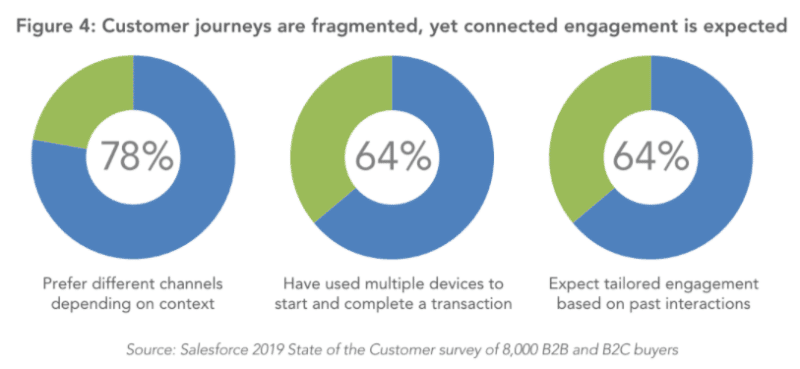
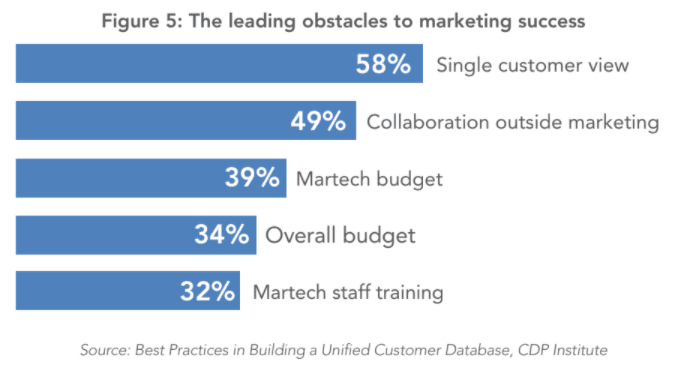
This challenge isn’t going to go away anytime soon. Segmenting Salesforce’s customer data by generations reveals that younger cohorts switch devices more than older, and they’re also more likely to be adding IoT-type connected devices to their repertoire.
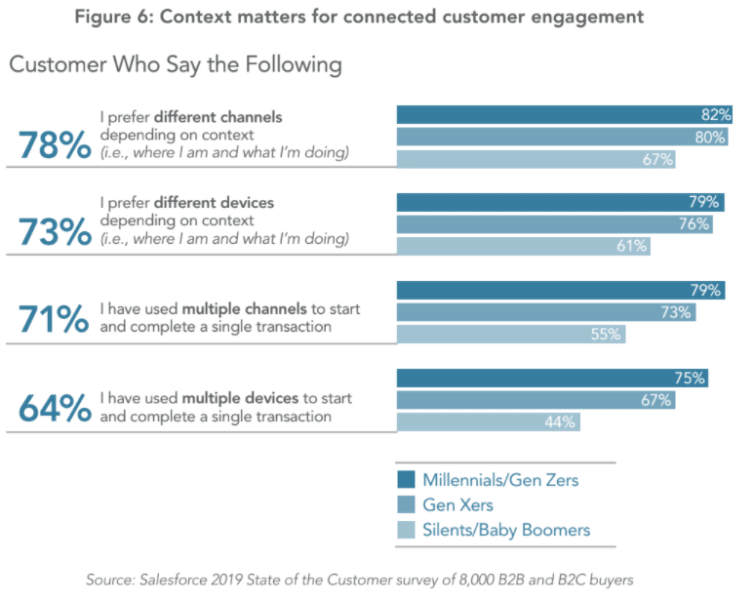
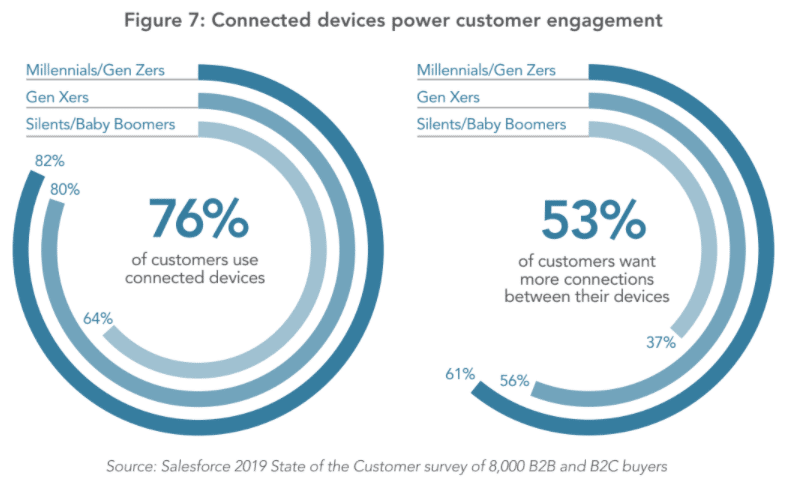
Meanwhile, customer data security and governance have leapt to the forefront of marketer concerns, as the alphabet soup of data regulations — from HIPAA (Health Insurance Portability and Accountability) to HITECH (Health Information Technology for Economic and Clinical Health) to GDPR (General Data Protection Regulation), CCPA (California Consumer Privacy Act) and CASL (Canada Anti-Spam Legislation) — continues to grow.
More about CDPs
Enter the Customer Data Platform, a system designed for non-IT use to streamline the flow of customer data throughout the martech stack and create a single view of the customer. High expectations, along with the proliferation of possible customer touchpoints, make cross-device IDs and identity resolution — the ability to consolidate and normalize disparate sets of data collected across multiple touchpoints into an individual profile that represents the customer or prospect — critical for helping marketers, sales and service professionals deliver the ideal total customer experience. CDPs offer this consolidation and normalization and also make the data profiles freely available to other systems.
Additionally, CDP vendors seek to help marketers address the privacy challenge by providing strong data governance protocols that are certified by third-party organizations to ensure compliance with these types of regulations, as well as other data security standards. For example, many CDP vendors are SOC (Service Organization Control), SSAE (Statement on Standards for Attestation Engagements) and/or ISO (International Standards Organization) certified. These audits confirm best practices around internal processes, data management, data privacy and security.
For more on Customer Data Platforms, including more analysis of the category and profiles of 23 different vendors, download our newly-updated buyer’s guide today!
The post What’s behind the hype about Customer Data Platforms? appeared first on Search Engine Land.
Source: IAB

